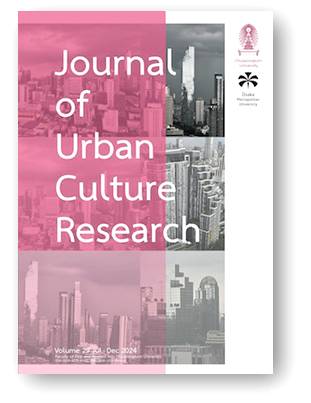Pi Chawa Performance in Muay Thai by Japanese People
DOI:
https://doi.org/10.14456/jucr.2024.16Keywords:
Pi Chawa Performance; Thai Music; Thai Boxing; Pi Chawa Klong Khaek; Cross-Cultural Learning; Martial Art Music; Muay Thai; Thai; JapaneseAbstract
This article examines the integration of Thai urban culture into Japan through the musical performance of the pi chawa, a traditional Thai oboe, in Muay Thai, a Thai martial art, by a Japanese woman. Data were collected from workshops in Osaka (2016) and Hokkaido (2017), supplemented by two years of follow-up training in Thailand. This cross-cultural exchange not only enhanced cultural awareness and appreciation but also fostered community bonds and provided educational opportunities. As a result, Yayoi Kuriyama emerged as a proficient Japanese female pi chawa musician, now performing in an all-female pi chawa klong khaek ensemble for Muay Thai matches in Japan. This integration highlights the broader benefits of cross-cultural learning in urban contexts, including economic boosts, social cohesion, and the preservation and innovation of cultural heritage.
Downloads
Published
How to Cite
Issue
Section
License

This work is licensed under a Creative Commons Attribution-NonCommercial-NoDerivatives 4.0 International License.
Authors authorize the JUCR to publish their materials both in print and online while retaining their full individual copyright. The copyright of JUCR volumes is retained by Chulalongkorn University.
The views and opinions expressed herein are those of the individual author(s) and do not necessarily reflect the policies or opinions of the Journal (JUCR), it editors and staff, Chulalongkorn University, or Osaka Metropolitan University.








